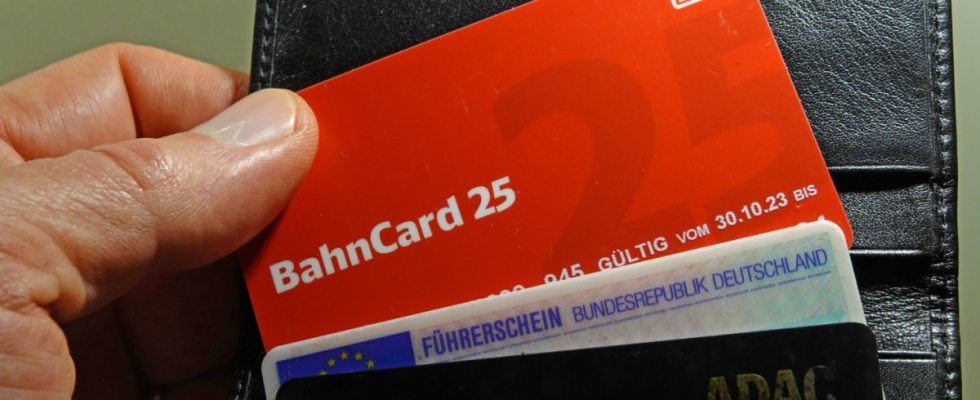In the future, Deutsche Bahn wants to only issue the rail cards intended for frequent travelers digitally and forego the plastic version. Initially, starting from the timetable change this Sunday, plastic test rail cards 25 and 50 will no longer be issued. The changeover of the annual products is planned for the second half of 2024, but customer feedback should be taken into account for the specific design of the digitalization process, a DB spokeswoman told the German Press Agency. From now on, there is no longer a plastic version available for the trial railcards 25 and 50, which are each valid for three months. In our experience, the target group is “very digitally savvy” and the duration is also short before a successor card made of plastic would be necessary. “That is why we have decided to no longer offer an analogue alternative here,” said the spokeswoman. According to DB information, 5.1 million BahnCards are issued every year.
“A digital BahnCard saves a lot of plastic,” said the marketing director at DB Fernverkehr, Stefanie Berk. In addition, unlike in physical form, the card cannot be forgotten or lost once it has been uploaded to the DB Navigator smartphone app. With a BahnCard, passengers receive a 25 or 50 percent discount when purchasing tickets, depending on the option, while a BahnCard 100 allows free travel on all trains. According to DB, 60 percent of BahnCard customers are already using the digital form of the cards in the DB Navigator app.
In addition, new timetables have been in effect since Sunday, there are more trains on the road and fares are rising. Especially on the routes between Berlin and North Rhine-Westphalia and between Berlin and Munich, the offer has increased thanks to additional long-distance trains, as the railway announced. The fault-prone train splitting in Hamm in North Rhine-Westphalia only occurs half as often as before. Berlin will also receive a second transfer-free ICE connection to Vienna. Together with the Austrian Federal Railways and other railway companies, the railway also offers a night train connection between Berlin and Brussels and Paris three times a week. The first Nightjet leaves the federal capital on Monday evening.
The timetable change also brings new offers between Leipzig, Jena and Nuremberg. In the future, five IC connections per day will be offered through the Saale Valley, it was said. So far there has only been one trip each. For the first time, Magdeburg will have a connection to Hamburg as well as more direct connections to Berlin and Rostock. More long-distance journeys are becoming possible because the railways are gradually getting new ICE trains. Tickets for trips from December 10th have been available since October. However, with the timetable change on Sunday, higher fares also apply. The so-called flex tickets then cost an average of 4.9 percent more.

